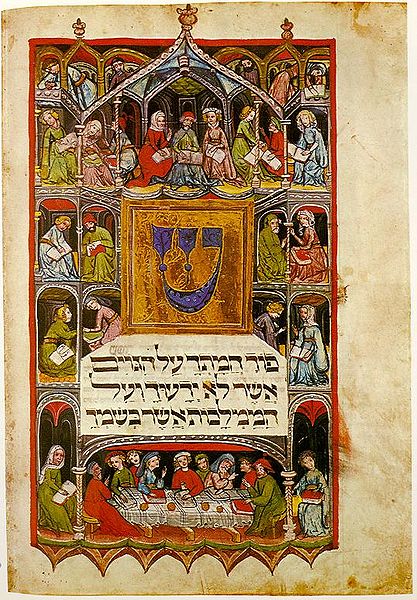

|
|
|
|
|
|
Hallo again to all. As we begin our walk through Holy Week, we warmly remember the many times we have joined our Jewish friends at their homes for Seder during Passover. The Seder is the ritual meal that marks the start of Passover and celebrates and remembers the Jewish exodus out of slavery in Egypt. This year, Passover begins the evening of Monday in Holy Week (it begins on the 15th day of Nisan, the 7th month of the Jewish calendar). One component of the Seder as currently celebrated is the asking of The Four Questions. Traditionally, the youngest child at the table learns to chant these words in Hebrew to ask them in front of their extended family at the table. Familiar words from an unsure voice with youthful innocence, beginning with the introductory question: 
The child then asks four more questions, based on talmudic texts. Questions about: why on this night only matzoh is eaten, about why the meal includes bitter herbs, about why even the posture of the family is different for the seder - answering the introductory question with more questions. When the chanting of the questions is completed, the haggadah continues with "We were slaves to Pharaoh in Egypt, and the Lord, our God, took us out from there with a strong hand and with an outstretched arm." Food, prayer, and singing continues. Listening to a small child chant these questions in the context of this ritual meal always brings to mind the familiar tones of the Exsultet, which we hear chanted at the Easter Vigil. With plumes of incense in the darkened church, we hear our own answers to these questions as brought to us through Christ:
Why is this night different from all other nights? This is the night, when all who believe in Christ are delivered This is the night, when Christ broke the bonds of death and hell, The question we heard at Seder is answered a few days later (or earlier some years) at Easter Vigil in our own home church, in our own experience of ritual and tradition—and what a wonderful answer it is! The flowing, rejoicing tones reminding us of
our salvation through Christ's death and resurrection. This night is different from all other nights for reasons going back thousands of years and ties us to the history of our tradition. When we celebrate the interconnectedness of different faiths and people we find hearing the questions of others can help us come to our own answers.* Wishing you a blessed Holy Week.
13 April 2014 |
This web site is independent. It is not official in any way. Our editorial staff is private and unaffiliated. Please contact editor@anglicansonline.org about information on this page. ©2014 Society of Archbishop Justus. Please address all spam to press@anglicansonline.org |